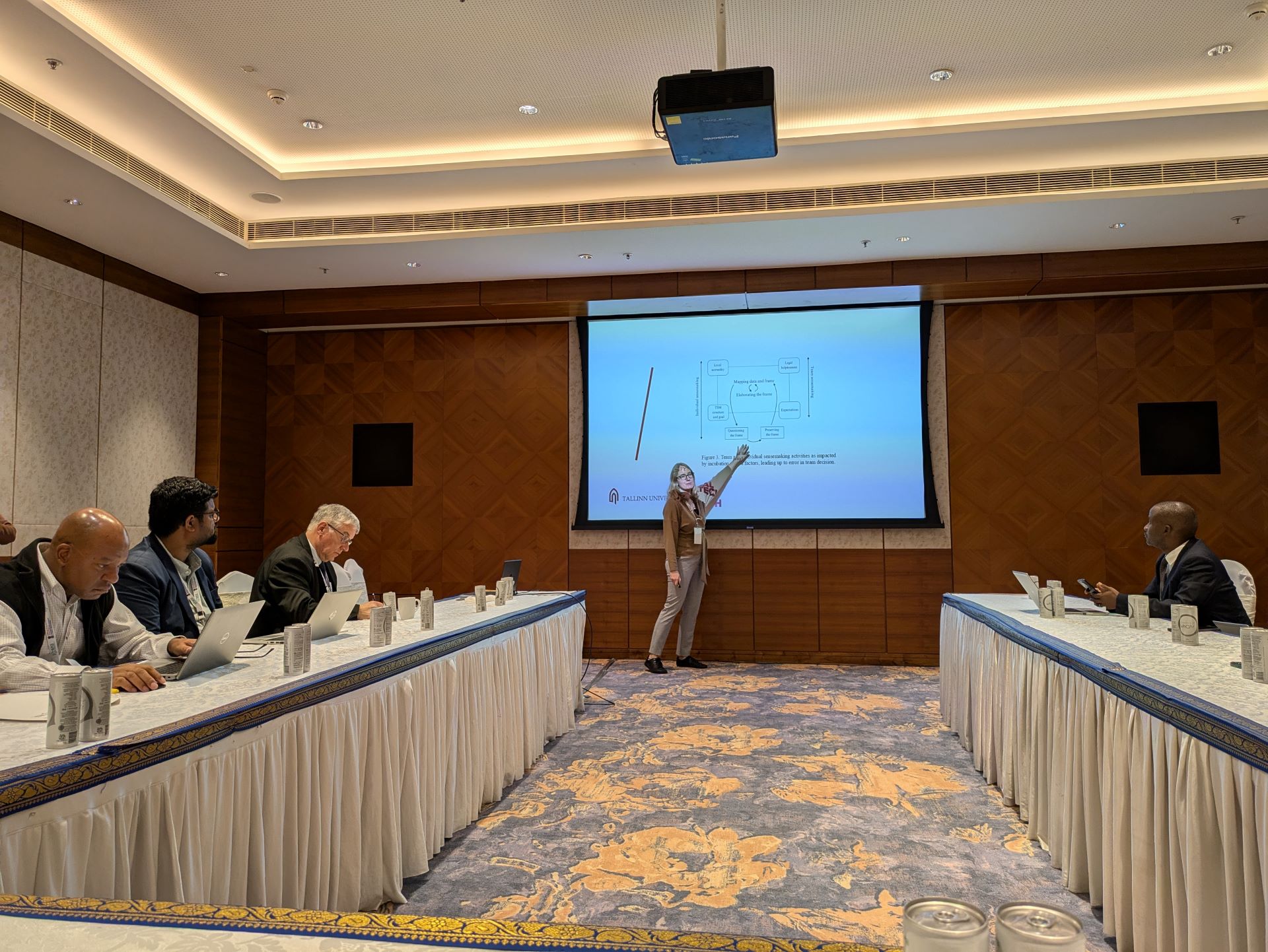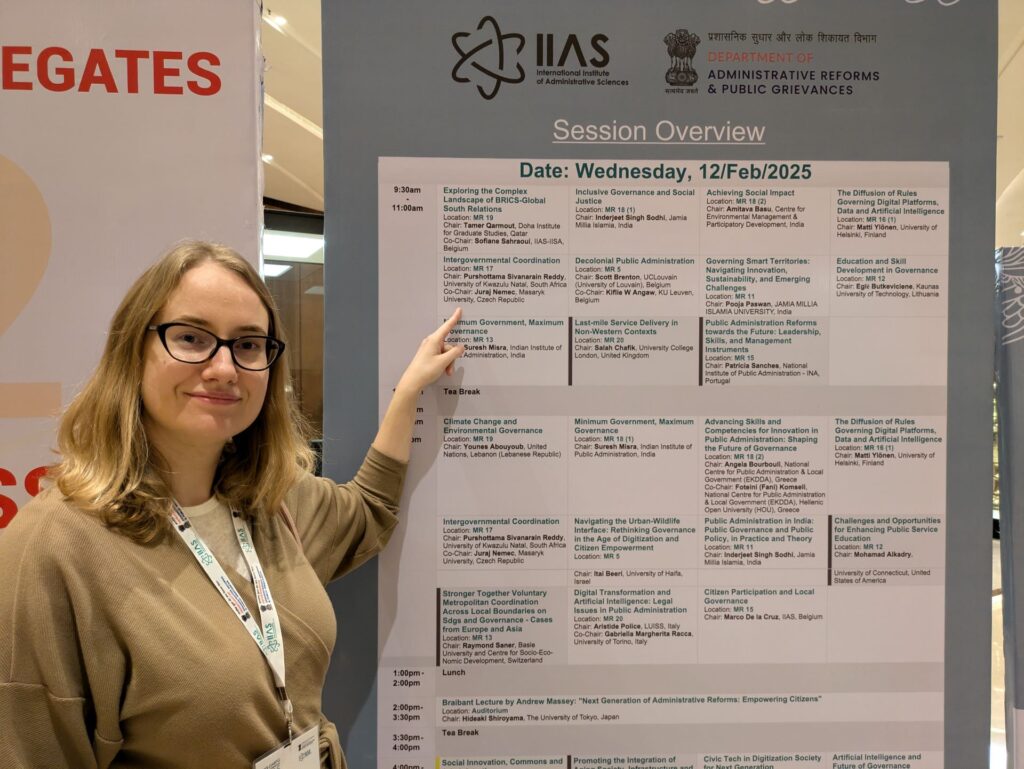
Presentation at the IIAS-DARPG 2025 conference in India
Researchers from the Crisis Research Centre are attending a high-level international conference in Delhi, India, from February 10-14. The conference takes place at the Bharat Mandapam Convention Centre in the New Delhi area, the venue of the 2024 G20 Summit.
The theme of this year’s conference is the “Next Generation Administrative Reforms – Empowering Citizens and Reaching the Last Mile” services. The conference will feature plenary sessions and panel discussions, but also thematic workshops where you can get feedback from top researchers in your field of research. It will also be a good opportunity to network and make new contacts.
The Crisis Research Centre will co-author a presentation on February 12. The panel will be on intergovernmental coordination, convened by the COST network. “This is the first time that the Crisis Research Centre is in Asia, and it is gratifying to see that in just three years we have succeeded in building an international network of wide-ranging cooperation. One of the organisers of the conference is the Department of Administrative Reforms and Public Grievances (DARPG) under the Indian Ministry of Personnel, Public Grievances, and Pensions,” said Hannes Nagel, Head of the Crisis Research Centre.
“In our presentation, we focused on the process of team-based meaning-making in the early stages of a crisis, before key decisions are made. We explored how multi-level decision-makers dealt with the incubation period of the COVID-19 pandemic with the authorisation of a possible superspreader event in March 2020 in Saaremaa.”
The analysis was based on data-frame theory and included content analysis of media coverage and semi-structured interviews with representatives of multi-level stakeholders. The results show that team meaning-making at this critical stage was mainly limited to mapping the data and the framework and to refining the framework, which ultimately led to a flawed decision.
The Crisis Research Centre study highlights the complex dynamics that shaped the decisions taken in the early phase of the crisis and underlines the importance of team meaning-making in a pre-crisis situation. The process analysed shows how decisions made during the incubation period can be biased by limited meaning-making activities, to the exclusion of critical reflection and alternative scenarios.The results of the study will help to understand how to better manage early crisis decisions in the future to avoid similar mistakes and ensure more effective crisis management.


🛑 Did you know that New Delhi (Hindi: नई दिल्ली) is home to one of the world’s biggest man-made crises—air pollution, which kills over 12,000 people, or roughly the equivalent of the city of Valga in Estonia, every year? You can read more about it and how the Government of India is trying to tackle the crisis on our blog here.
Photos: conference presentation (KRUK, 2025) and air pollution in New Delhi near the India Gate (Pexels/Shalender Kumar, 2020).
Jaga postitust:
